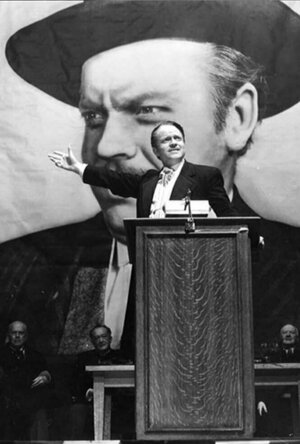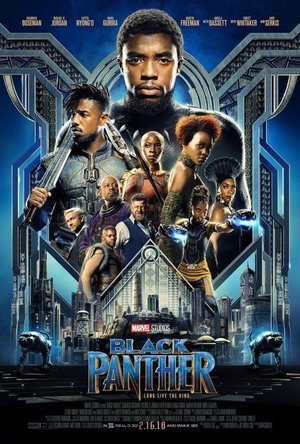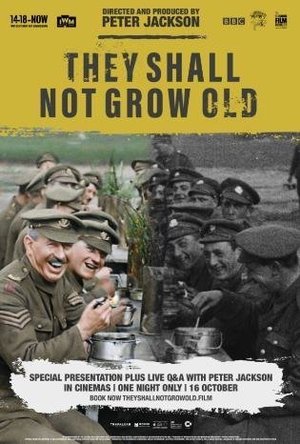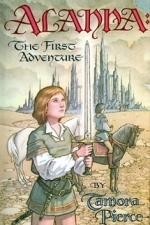
Comix Zone Classic
Games, Entertainment and Stickers
App
Enter the Comix Zone, in SEGA's classic arcade-style beat 'em up, now available on mobile for the...

Femisphere Pregnancy Tracker
Medical and Health & Fitness
App
Awarded by the IFA+ Summit as well as the the German Accelerator (German Federal Ministry of...

French-English Translation Dictionary and Verbs
Reference and Education
App
Top-selling dictionary app since 2008 • Every translation you need plus verb conjugations in all...

Collins Italian-English Translation Dictionary and Verbs
Reference and Education
App
Over 95,000 translations • Conjugates thousands of Italian and English verbs • Hundreds of...

Collins-Robert Concise French Dictionary
Reference and Education
App
57,000 headwords and more than 190,000 translations • more than 90,000 phrases • full...

Forex Calendar, Market & News
Finance
App
We're excited to release the official IOS App of Myfxbook.com, the leading social forex community...
Bob Mann (459 KP) rated Mank (2020) in Movies
Dec 10, 2020
In developing the story, we continuously flash-back six years - - nicely indicated by typed 'script notes' - - to 1934 where Mank is working at MGM studios for Louis B. Mayer (Arliss Howard) and mixing in the circles of millionaire publisher William Randolph Hearst (Charles Dance) and his glamorous young wife, actress Marion Davies (Amanda Seyfried). Allegedly, the "Citizen Kane" script was based on Hearst. But what souring of the relationship could have led to such a stinging betrayal during those six years?
Mank has an embarrassment of acting riches. Mankiewicz is a fascinating character: charismatic, reckless, passionate and the definition of a loose cannon. Basically, a dream for a great actor to portray. And Gary Oldham IS a great actor. After doing Churchill in "Darkest Hour", he here turns in a magnificent performance as the alcoholic writer. Never more so than in a furious tirade at a dinner table late in the film, which will likely be the equivalent to the Churchill "tiger" speech come Oscar time. Surely, there's a Best Actor nomination there?
Equally impressive though are some of the supporting cast.
- Tom Burke - so good as TV's "Strike" - gives a fine impersonation of the great Orson Welles: full of confidence and swagger. It's only a cameo role, but he genuinely 'feels' like the young Welles.
- Amanda Seyfried: It took me almost half of the film to recognize her as Marion Davies, and her performance is pitch perfect - the best of her career in my view, and again Oscar-worthy.
- Arliss Howard for me almost steals the show as the megalomaniac Mayer: his introduction to Mank's brother Joe (Tom Pelphrey) has a memorable "walk with me" walkthrough of the studio with Mayer preaching on the real meaning of MGM and the movies in general. Breathtakingly good.
- But - I said "nearly steals the show".... the guy who made off with it in a swag-bag for me was our own Charles Dance as Hearst. Quietly impressive throughout, he just completely nails it with his "organ-grinder's monkey" speech towards the end of the movie. Probably my favourite monologue of 2020. Chilling. I'd really like to see Dance get a Supporting Actor nomination for this.
The screenplay was originally written by director David Fincher's late father Jack. Jack Fincher died in 2002, and this project has literally been decades in the planning. Mankiewicz has a caustic turn of phrase, and there are laugh-out lines of dialogue scattered throughout the script. "Write hard, aim low" implores Houseman at one point. And my personal favourite: Mank's puncturing of the irony that the Screen Writers Guild has been formed without an apostrophe! A huge LOL!
Aside from the witty dialogue, the script has a nuance to the storytelling that continually surprises. A revelation from Freda about Mank's philanthropic tendencies brings you up short in your face-value impression of his character. And the drivers that engineer the rift between Mankiewicz and Hearst - based around the story of the (fictional) director Shelly Metcalf (Jamie McShane) - are not slapped in your face, but elegantly slipped into your subconscious.
In addition, certain aspects are frustratingly withheld from you. Mank's long-suffering wife (a definition of the phrase) Sara (Tuppence Middleton) only occasionally comes into focus. The only reference to his kids are a crash in the background as they "remodel" the family home. Is the charismatic Mank a faithful husband or a philanderer? Is the relationship with Rita Alexander just professional and platonic (you assume so), or is there more going on? There's a tension there in the storytelling that never quite gets resolved: and that's a good thing.
Mank also has an embarrassment of technical riches. Even from the opening titles, you get the impression that this is a work of genius. All in black and white, and with the appearance of 40's titling, they scroll majestically in the sky and then - after "Charles Dance" - effortlessly scroll down to the desert highway. It's evidence of an attention to detail perhaps forced by lockdown. ("MUM - I'm bored". "Go up to your room and do some more work on that movie then".)
It's deliciously modern, yet retro. I love the fact that the cross-reel "circle" cue-marks appear so prominently... the indicators that the projectionist needs to spin up the next reel. I think they are still used in most modern films, but not as noticeably as in the old films... and this one!
A key contributor to the movie is cinematographer Erik Messerschmidt. Everything looks just BEAUTIFUL, and it is now a big regret that I didn't go to watch this on the big screen after all. Surely there will be a cinematography Oscar nomination for this one. Unbelievably, this is Messerschmidt's debut feature as director of cinematography!
Elsewhere, you can imagine multiple other technical Oscar noms. The tight and effective editing is by Kirk Baxter. And the combination of the glorious production design (Donald Graham Burt) and the costume design (Trish Summerville) make the movie emanate the same nostalgia for Hollywood as did last year's "Once Upon a Time... In Hollywood".... albeit set forty years earlier. Even the music (by the regular team of Trent Reznor and Atticus Ross) might get nominated, since I had to go back and check that it actually HAD music at all: it's subtly unobtrusive and effective.
The only area I had any issue with here was the sound mixing, since I had trouble picking up some of the dialogue.
Although I can gush about this movie as a technical work of art, I'm going to hold off a 10* review on this one. For one reason only. I just didn't feel 100% engaged with the story (at least with a first watch). The illustrious Mrs Movie Man summed it up with the phrase "I just didn't care enough what happened to any of the characters". I think though that this one is sufficiently subtle and cerebral that it deserves another watch.
Will it win Oscars. Yes, for sure. Hell, I would like to put a bet on that "Mank" will top the list of the "most nominations" when they are announced. (Hollywood likes nothing more than a navel-gazing look at its history of course). And an obvious nomination here will be David Fincher for Best Director. But, for me, this falls into a similar bucket as that other black and white multi-Oscar winner of two year's ago "Roma". It's glorious to look at; brilliantly directed; but not a movie I would choose to readily reach for to repeatedly watch again.
(For the full graphical review, please check out the review here - https://bob-the-movie-man.com/2020/12/10/mank-divines-for-oscar-gold-in-a-sea-of-pyrites/. Thanks.)
Ryan Hill (152 KP) rated Black Panther (2018) in Movies
May 11, 2019
I remember years ago I read a book about the cultural significance of various comic book locales, and the Wakanda entry struck me as uniquely sad and inspiring. Wakanda, a place busting with innovation, tradition, and pride...hidden from the world. Sort of an alternate-timeline Africa which wasn't poisoned irreparably by colonialism and all its horrors. There's a sad duality obvious in this Wakanda, that being for it to exist, it must be hidden. Must be quietly nurtured, developed and treasured. It's an apt metaphor in relation to black pride, culture, and history; something constantly being reworked, reshaped and reimagined to put a sordid past (and present) in the rear-view mirror by those who perpetrate it, knowingly or not. This idea, that for something to thrive it must be isolated, is at the heart of Black Panther. You can understand why T'Challa, and generations before him, sacrificed anything to preserve the myth of Wakanda. But you can also understand Killmonger's feeling of betrayal. The profound moral objections inherent in a small community turning it's back on a larger suffering population in the name of self-preservation. There's no heroes and villains when Black Panther is at it's best, just two sides to a terrifying moral question *loaded* with historical weight.
Because Killmonger isn't really a villain. The best illustration of this is the contrasting "dream" sequences, in which T'Challa shares a promise with his father within a transcendentally beautiful African landscape, and Killmonger is confronted by all his pain, suffering and moral rigidity in the vast concrete jungle of Oakland, in the tiny apartment where his father was murdered for trying to make a difference. They both wake up with tears in their eyes, some from pain and some from catharsis. Coogler marks the chasm between T'Challa's and Killmonger's pasts so perfectly, and illustrates exactly why they feel the way they do with such wisdom. Black Panther so clearly empathizes with Killmonger and understands where his pain was born, and the horrors that nurtured it.
And so there's no hero and no villain to this movie. Just two men in nearly identical black panther suits, clashing over how Wakanda ought to venture into a new era. Nobility and passion, conservation and sacrifice, incremental change against a vengeful redistribution of power and oppression. Both men are correct in their aspirations, being "right" here doesn't matter. it's tough for a good man to be king. Killmonger made T'Challa the hero he is, by instilling in him a mission, a perceived duty to turn around, face an oppressed people and finally lend a hand. But more than that, there's something miraculous here. An apology from a good man. A recognition of a sin even when it's perpetrator was, until now, helpless to prevent it. A declaration that not contributing to hate and prejudice doesn't equate to actively working to prevent it. A plea for a humble brand of superheroism, for countless ghosts of the past to be heard and change to erupt in their name. Divides to be bridged, chasms to be crossed and wrongs to be righted.
Black Panther has a complex, meaningful and profoundly challenging thematic framework; offering a fresh dissection of what it means to grapple with the sins of those who came before. Sure, there are some technical issues along the way, the machinations of Marvel storytelling are evident and errors could be found; but if you understand that superhero stories were meant to ask these sorts of questions and push boundaries since their inception; Black Panther is a dream.
Emma @ The Movies (1786 KP) rated They Shall Not Grow Old (2018) in Movies
Sep 25, 2019
I'm going to skip over most of the massive fiasco that was Cineworld's handling of the screening. The issue came from them under estimating how popular it would be. With people interested in history and people interested in the processes used that meant a lot of viewers and unsurprisingly they sold out the small screen and had to move it to a bigger screen. So many people turned up that there were even seats allocated in the first five rows which never normally happens.
The footage and narrative that were put together for this were excellent. Things that never occurred to me before were brought to the screen with a lightheartedness and humour that off-set the horrors of war. For example, it had never occurred to me how soldiers in the field dealt with the toilet situation. Holes in the ground are the obvious conclusion, but I had never seen the images of the giant hole with a log suspended over it where you'd all hang out (literally) to get some relief.
The technical side of films are not something I know a great deal about, but the basics were explained in the Q&A afterward. Old film runs at a different frame rate to new film. (Yes, I know anyone with the technical knowledge is screaming in pain at my description here but you'll have to deal with it!) So all the film had to be lengthened to be used. This meant feeding it into a computer that would extrapolate the missing frames to make everything work. The quality was then enhanced and colourised.
When the film itself is presented it starts in black and white and changes to colour soon after. That moment brought goosebumps. Footage like you've never seen before, AND on the big screen. It made an amazing impact.
The voice overs during the film were all cast to match the regional accents of the soldiers, which was an incredibly nice touch. As well as the voices all the sounds had to be recreated and honestly they fit so well you'd have assumed they were "live".
Here's where I get to my "however" moment.
It was interesting, the sound effects were brilliantly done, and bringing unseen footage to the big screen was a massive accomplishment, especially to do it in a sensitive way... however... I personally wasn't a fan of some of the film outside of the story it was telling.
As I mentioned, the production was only supposed to be 30 minutes long. I can understanding why they made it longer but as a "film" it did begin to drag. It perhaps would have benefited from being a short series as opposed to one long documentary.
Seeing it outside of this screening you would have also missed out on many of the fascinating facts that we discovered during the Q&A at the end. It's entirely possible that the sound effects would have gone completely unnoticed as they feel so realistic. Combining the Q&A style dialogue and the documentary would have been interesting and you would have been even more in awe of what they achieved.
This screening was presented in 3D. You by now will know I have mixed feelings about 3D. I don't think the effect in this instance really added anything to it. The impressive nature of the file footage was what the film needed to concentrate on.
On that point, and as previously mentioned, the archive footage had to be dubbed and they went to a lot of effort with casting and hiring lip readers to stay authentic, which was brilliant. But I also felt that the effort was diminished by the quality of the audio. Not that it was bad, but that is was in fact very good. The stories that were recounted over the footage was wonderfully done. My issue was with the lip-synced scripts. The audio track was a stark contrast to the footage. Restoration can't change the fact that the footage is old and still grainy. Having a modern, perfectly clear track over the top didn't make it feel real. I can't help but think that those sections would have been improved if the audio had been "aged" to match with what we were seeing.
Lastly I come to what I realise is in essence most of the documentary. The restoration. During the showing in close up footage the faces of the soldiers seemed to distort as they moved. I imagine that this is the computer generated frames working with the actual footage. It became increasingly difficult not to notice this happening and I found it rather off putting. The colourisation felt strange at times, perhaps because I expect war to appear more drab because of the way cinema usually portrays it. That wasn't something I found to be constant though, some blended in while watching and just a few frames stood out. There's no denying its initial impact though, that transition was possibly the most effective bit of the whole production.
What you should do
I know I've been critical of a lot of things there and I've only given it 3 stars but you should definitely see They Shall Not Grow Old. The story it tells is undeniably incredible and important. If I was only judging the documentary on its own I would have given this 5 stars.
Goddess in the Stacks (553 KP) rated Alanna: The First Adventure in Books
Apr 16, 2018
That complaint aside, the Alanna books are really the foundation that the rest of Tortall was built upon. It's interesting to see how Pierce has fleshed out some of the concepts she touched on in the Alanna saga, and it's fun to see where some of the things from the Beka Cooper trilogy originated. It also pays to keep in mind that though the Alanna books were written first, the Beka Cooper trilogy is based two hundred years earlier. We learn a lot more about the office of The Rogue in the Beka Cooper trilogy, something that isn't explained very well in the Alanna quartet, even though one of Alanna's main romantic interests is George Cooper (yes, a descendant of Beka!), the Rogue. Pierce also never explains the origins of Alanna's cat, Faithful, in the actual Alanna books. That explanation lies in the Beka Cooper books as well.
The Song of the Lioness quartet is the story of a girl who decides to rebel against tradition and follow her heart to become a knight. In her time, ladies simply do NOT become knights. They learn to organize households and marry well. Alanna, however, is lucky enough to have a twin brother who does not want to become a knight; instead Thom wants to be a mage. So when they're sent off to face their futures, they switch places, with Alanna becoming "Alan", the younger twin. (Thom stays Thom; the school that ladies are sent to is the same school mages start at.)
Alan/Alanna begins as a page, then moves to squire, and eventually a knight. Her secret is discovered, but due to her influential friends, most of whom knew she was a girl by then, she is able to keep her status. Her adventures take her from uncovering a plot against the royal family, to being adopted by a desert tribe, to recovering a magic jewel of prosperity, with many small adventures in between.
I love reading Pierce's heroines; both Alanna and Beka have problems reconciling their feminine natures with the work they've chosen. The scenes where Alanna's love interests see her in a dress for the first time, instead of her normal boy-garb and armor, is heart-warming in one case, and sad in another. In both womens' lives it's the man who can accept all of their aspects who ultimately wins their heart, which is a wonderful message.
Ultimately, the technical flaws in the writing of the Alanna saga faded as I became absorbed in the story. I'll be requesting more Tortall books from the library in the near future!
You can find all my reviews at http://goddessinthestacks.wordpress.com



